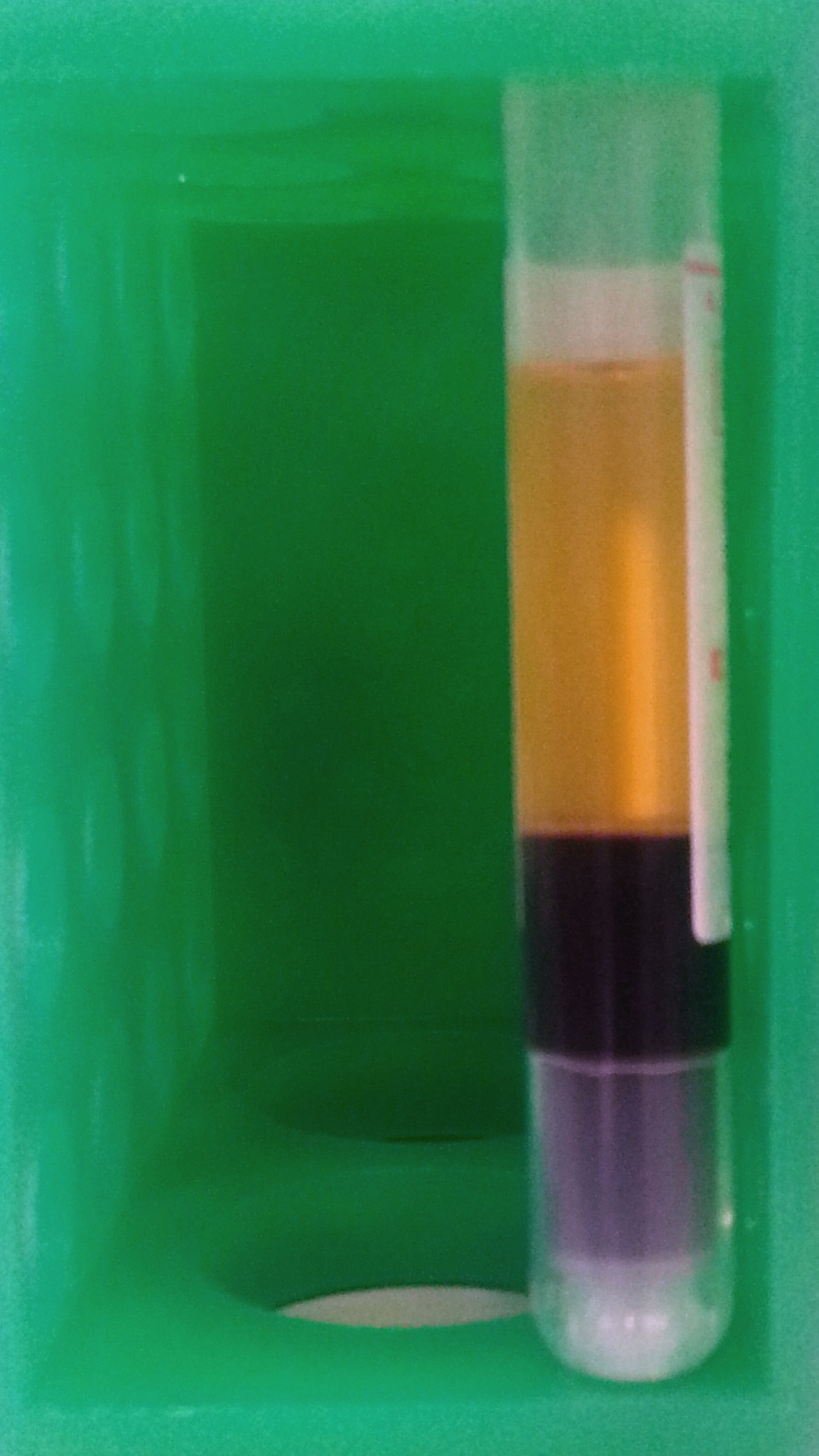Difference between revisions of "Template:Article of the week"
Shawndouglas (talk | contribs) (Updated article of the week text.) |
Shawndouglas (talk | contribs) m (Forgot internal link) |
||
| Line 1: | Line 1: | ||
<div style="float: left; margin: 0.5em 0.9em 0.4em 0em;">[[File:Krew Frakcjonowana.jpg|140px]]</div> | <div style="float: left; margin: 0.5em 0.9em 0.4em 0em;">[[File:Krew Frakcjonowana.jpg|140px]]</div> | ||
'''Cytopathology''' is a branch of cytology and pathology that studies and diagnoses diseases on the cellular level. While cytopathology is closely related to [[histopathology]], the main difference is diagnostic information gained from cytopathology is acquired from disaggregated cell preparations rather than solid tissue samples. | '''[[Cytopathology]]''' is a branch of cytology and pathology that studies and diagnoses diseases on the cellular level. While cytopathology is closely related to [[histopathology]], the main difference is diagnostic information gained from cytopathology is acquired from disaggregated cell preparations rather than solid tissue samples. | ||
A common application of cytopathology is the Pap smear, used as a screening tool, to detect precancerous cervical lesions and prevent cervical cancer. Cytopathology is also commonly used to investigate thyroid lesions, diseases involving sterile body cavities (peritoneal, pleural, and cerebrospinal), and a wide range of other body sites. It is usually used to aid in the diagnosis of cancer, but also helps in the diagnosis of certain infectious diseases and other inflammatory conditions. Cytopathology is generally used on samples of free cells or tissue fragments, in contrast to [[histopathology]], which studies whole tissues. | A common application of cytopathology is the Pap smear, used as a screening tool, to detect precancerous cervical lesions and prevent cervical cancer. Cytopathology is also commonly used to investigate thyroid lesions, diseases involving sterile body cavities (peritoneal, pleural, and cerebrospinal), and a wide range of other body sites. It is usually used to aid in the diagnosis of cancer, but also helps in the diagnosis of certain infectious diseases and other inflammatory conditions. Cytopathology is generally used on samples of free cells or tissue fragments, in contrast to [[histopathology]], which studies whole tissues. | ||
Revision as of 17:40, 4 August 2014
Cytopathology is a branch of cytology and pathology that studies and diagnoses diseases on the cellular level. While cytopathology is closely related to histopathology, the main difference is diagnostic information gained from cytopathology is acquired from disaggregated cell preparations rather than solid tissue samples.
A common application of cytopathology is the Pap smear, used as a screening tool, to detect precancerous cervical lesions and prevent cervical cancer. Cytopathology is also commonly used to investigate thyroid lesions, diseases involving sterile body cavities (peritoneal, pleural, and cerebrospinal), and a wide range of other body sites. It is usually used to aid in the diagnosis of cancer, but also helps in the diagnosis of certain infectious diseases and other inflammatory conditions. Cytopathology is generally used on samples of free cells or tissue fragments, in contrast to histopathology, which studies whole tissues.
Rudolf Ludwig Karl Virchow is considered by many to be one of the fathers of cellular pathology, remembered most for his collection of lectures on the topic, published as Cellular Pathology in 1858. (Full article...)
Recently featured: Clinical pathology, Anatomical pathology, Information










